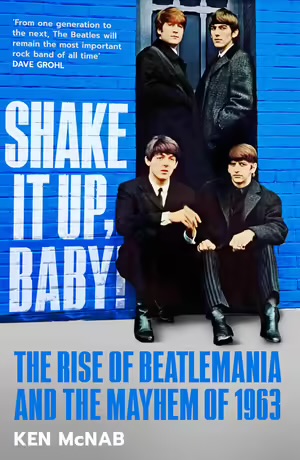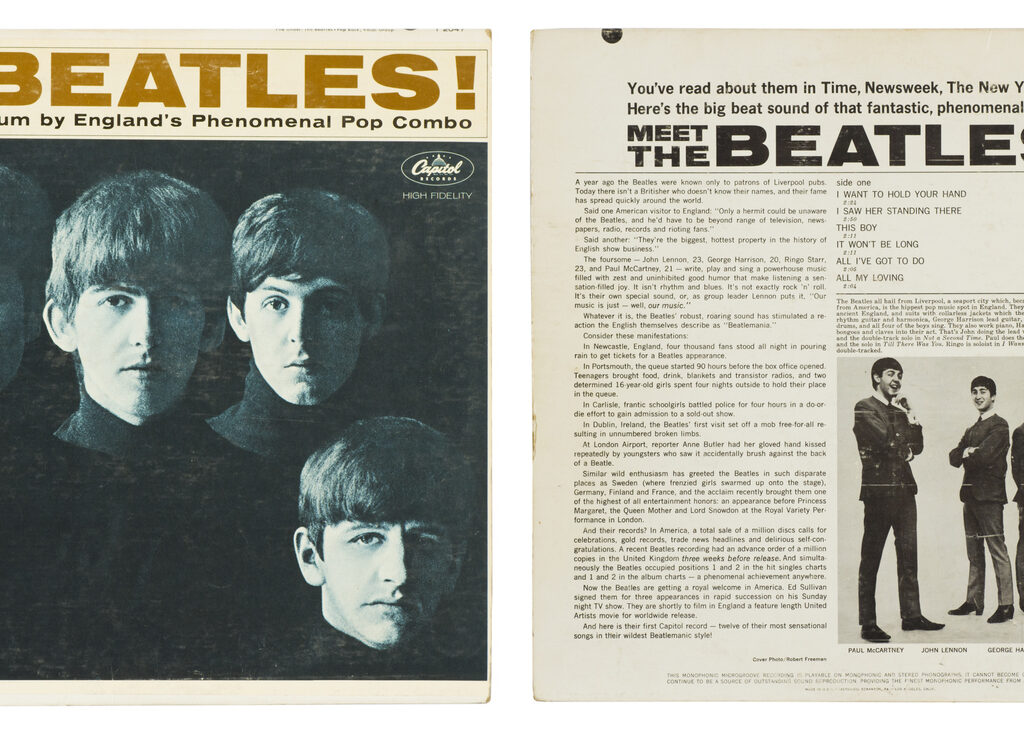Reviews: A Northern Wind: Britain, 1962-65, David Kynaston, Bloomsbury
Shake It Up, Baby! The Rise of Beatlemania and the Mayhem of 1963, Ken McNab, Birlinn
David Kynaston is in the middle of a monumental multi-volume history of Britain, in the period between the end of World War II and Thatcher. Although his last book focussed exclusively on 1962, a year of tremors, 1963, covered by much of this book, seemed like an earthquake. As well as being, chronologically, at the half-way point, 1963 was a year when the old order was giving way to the new, epitomised perhaps by two key events: the Profumo Affair and the rise of the Beatles.
What makes this series so intriguing is the way Kynaston moves between the high level – political, cultural – and the way this affected the lives of Britons, often revealed by quotes from the diaries and letters of famous and not-famous Britons. These are goldmines, with schoolgirls commenting on the death of John Kennedy, housewives critiquing TV, the likes of C S Lewis, Sylvia Plath and Philip Larkin judging the morality of contemporary Britain.

While the minutiae of daily life and Westminster financial policies may be a bit much at times for non-British readers, in the general cultural flow we can see parallels with Australian society – as postwar prosperity rose, technology reshaped life, as labour governments took over from conservatives (in Australia at a somewhat later date), and as a blooming youth culture widened the gap between generations.
There was gentrification and modernisation of city centres – supermarkets and shopping centres were replacing high street shops. The welfare state was at full-steam, and bureaucracy was bubbling with new-fangled ideas. There was some modernisation of attitudes, with racism being called out, but the influx of immigrants exacerbated racism in some areas. Clergy decried racism but were less modern in their attitudes to ‘incomprehensible’ theatre, ribald TV and rock’n’roll. John Robinson, Anglican bishop, drew the ire of fellow clergy for arguing, in a bestselling book, for an emphasis within the church on social justice over the supernatural.
The Profumo Affair – where a sex scandal brought down a government minister – seemed to indicate a declining morality. In the years that followed, such incidents would become regular tabloid fare, but in 1963 it crumbled the façade of born-to-rule decency of the upper classes. Newly famous TV interviewer David Frost said the scandal finally exposed their hypocrisy.

Geopolitically, as well as morally, in the eyes of some, the UK seemed to be in decline. Internationally, Britons were affected by the Cuban Missile Crisis and the death of JFK. (The government advised, with typical British understatement, that if nuclear war broke out, citizens should ensure they had sensible shoes and a blanket.) Just as prominent was the explosion in popularity of the Beatles – for some, further evidence of moral decline.
At the start of 1963 the Beatles had a minor hit single, their first. By the end of the year Beatlemania had overrun the country and they had signed up for appearances on the Ed Sullivan show in the US, which in 1964 would cause pandemonium there.
The Beatles keep popping up in Kynaston’s book. Ken McNab, in his, focusses exclusively on 1963 and the explosion of Beatlemania, due, on the one hand, to their raw appeal to a younger generation, which led to a kind of ‘mayhem’, and, on the other, to a controlled strategy of publicity saturation from their manager, Brian Epstein.
McNab tells the story of how Epstein had them do relentless gigs and radio interviews. They took only one day off in February from gigs, but it wasn’t really a day off – they recorded their debut album (in one day!). He got them out of leather jackets and into suits. The girlfriends and Lennon’s wife were kept in the closet to uphold the illusion of them being eligible bachelors. This was all to capitalise on their songwriting prowess, something that Lennon and McCartney thought would be their longevity. The pop world being what it is, fame as performers might be fleeting.
In the meantime, they caused chaos wherever they went – or more precisely, their fans did, especially the screaming girls. Generally, the band said they were having fun, but Lennon, the prickly one, became annoyed with the fact they couldn’t hear themselves play.

By November 1963 the Beatles were playing to royalty (in a show where Lennon famously asked the audience to ‘rattle your jewellery’). Domination of the UK complete, Epstein set his sights on the US. Weirdly, neither DJs nor the band’s US record company wanted anything to do with them. It would take a tenacious fan, who pestered a local DJ, and an initially sceptical Ed Sullivan to finally set the US on fire, igniting a global Beatlemania in 1964.
Nick Mattiske blogs on books at coburgreviewofbooks.wordpress.com and is the illustrator of Thoughts That Feel So Big.













